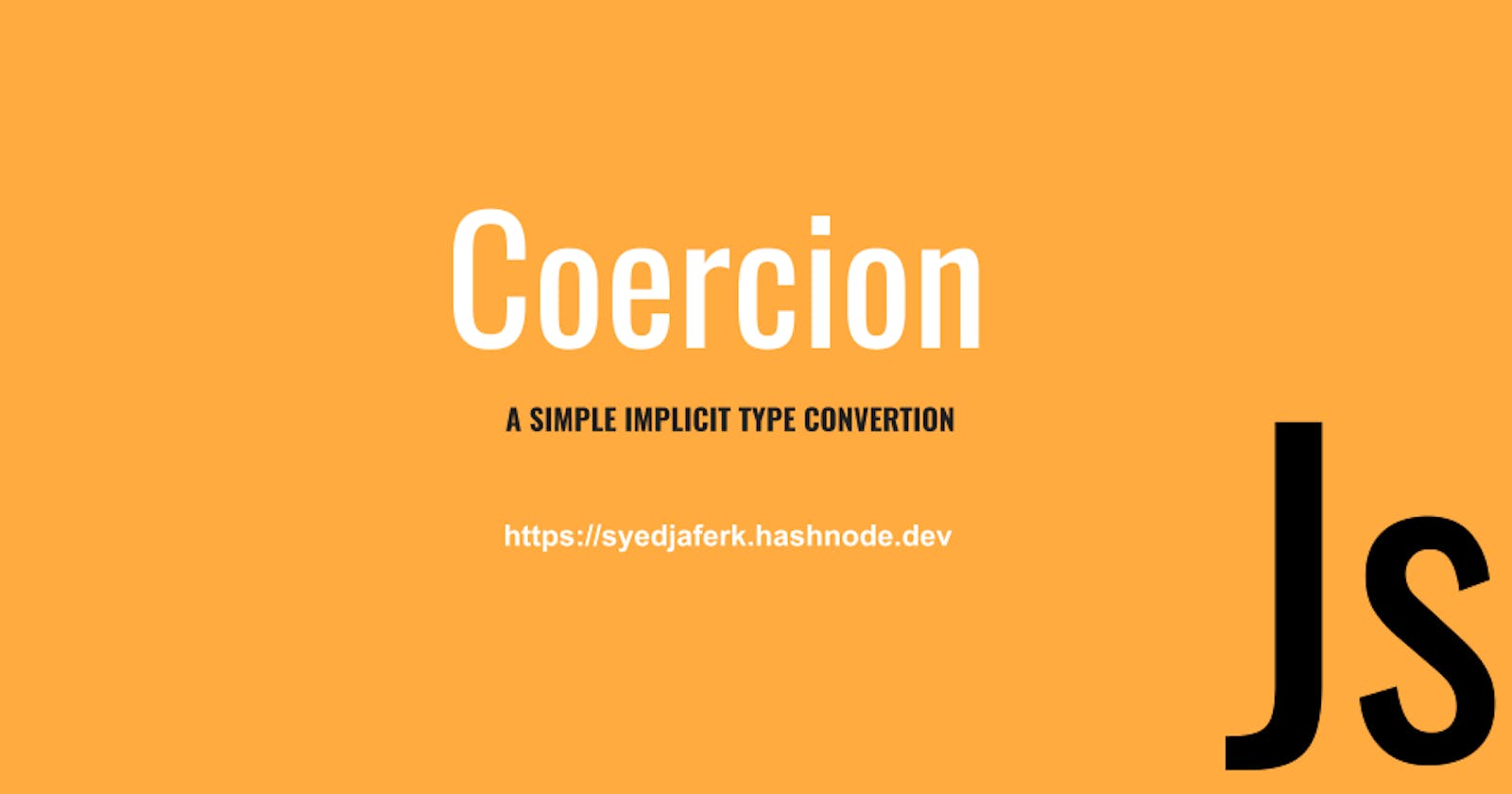Converting a value from one type to another is often called "type casting", when done explicitly, and "coercion" when done implicitly ( forced by the rules of how a value is used ).
We can check the implicit coercion using the identity(===) and equality(==) operators. The identity ( === ) operator behaves identically to the equality ( == ) operator except no type conversion is done, and the types must be the same to be considered equal.
- The == operator will compare for equality after doing any necessary type conversions.
- The === operator will not do the conversion, so if two values are not the same type === will simply return false.
- It's this case where === will be faster, and may return a different result than ==. In all other cases performance will be the same.
Coercion for different data types and equality checks in JS
Implicit conversion of interger.
function coercionExample() {
const x = 42;
const y = x + "";
console.log(y, typeof y);
const z = String(x);
console.log(z, typeof z);
}
console.log(coercionExample());
Output:

Equality checks
console.log('' == '0'); // false
console.log(0 == ''); // true
console.log(0 == '0'); // true
console.log(false == 'false'); // false
console.log(false == '0'); // true
console.log(false == undefined); // false
console.log(false == null); // false
console.log(null == undefined); // true
console.log(' \t\r\n ' == 0); //true

Array
var a = [1, 2, 3];
var b = [1, 2, 3];
console.log(a == b); \\false
console.log(a === b); \\false

Object
var c = {x: 1, y:2};
var d = {x: 1, y:2};
console.log(c == d); \\ false
console.log(c === d); \\ false

String
var e = "text";
var f = "te" + "xt";
console.log(e == f); \\ true
console.log(e === f); \\ true

Here the == operator is checking the values of the two objects and returning true, but the === is seeing that they're not the same type and returning false.
console.log("abc" == new String("abc")); //true
console.log("abc" === new String("abc")); // false


